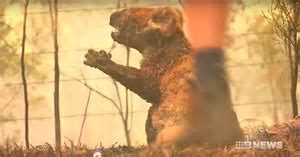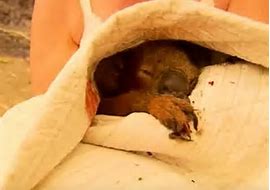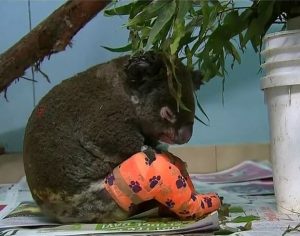

 Eric S. Margolis
Eric S. Margolis
November 30, 2019
Two tragedies just happened in Romania and Australia that have left this hardened war correspondent shaken and horrified.
An old tub of a cargo ship named the Queen Hind (likely Indian-owned but convenience flagged), packed with 14,600 live sheep, capsized at its dock on Romania’s Black Sea coast due to overcrowding and improper load balancing. At least 14,000 of the terrified sheep drowned in the icy waters and darkness of the overturned death ship. Imagine their plight.
Maybe the dead were the lucky ones: the sheep were consigned for Saudi Arabia, one of the world’s leading importers of live animals. The Saudis like their lamb freshly killed. So instead of importing frozen lamb from Australia and New Zealand, where it is supposed to be humanely slaughtered, the wretched animals endure weeks at sea in ship’s holds, in searing heat and terror, often with no food or water.
When the animals arrive in Arabia, they are herded into pens, have their necks cut or sawed and bleed to death. Other Mideastern animal importers are no less cruel. Israel is a bit better. I am helping a sanctuary there for discarded, worn out donkeys and horses.
Some time ago, a cargo ship filled with sheep from Australia was marooned off Saudi Arabia when its importer went bankrupt. Thousands of animals slowly died from intense heat and lack of water or food.
Rescue teams, including the splendid Four Paws of Vienna, Austria, are now trying to extract the dead and dying sheep from the Queen Hind. There is even debate now over whether to send the few score survivors to be killed in Saudi Arabia or put to pasture on a government farm in Romania to live out their lives.
Off in faraway eastern Australia, fierce bush fires have burned their way through vast areas inhabited by kangaroos, wombats, koala bears and many other animal and avian species. We rarely see the victims of these fast-moving fires, either in Australia, North or South America where baby animals and little birds can’t escape the onrushing infernos.
As a raging bush fire burned up the landscape, a lovely lady named Toni Doherty was driving when she heard screams and cries. She saw a little koala bear trapped in a burning field, its fur on fire. She jumped from her car, ran into the fire, grabbed the crying little koala, wrapped it in her shirt and escaped to her car.
The 14-year old koala was taken to the Port Macquarie Koala Hospital and treated for severe burns all over his body. After a hard struggle to save the little fellow, the medical staff there decided he could not be spared further agony and ended his life. Another 350 little koalas are estimated to have died. There is no estimate yet of wombat, kangaroo, anteater, or bird deaths.
Koalas are a national symbol of Australia. These adorable little animals are friendly, gentle vegetarians who like to live in trees and munch eucalyptus leaves. There may only be some 250,000 left. A few more annual bush fires and they risk becoming extinct. We need to protect our koalas, wombats and kangaroos. They are part of our earth and our humanity.
What we learn from this week of fire horror is that Australia must set up fire-proof shelters with ponds of water for their endangered animals. Getting stubborn koalas to use them is another story, but it’s still better than leaving these national treasures to the flames.
The UN and civilized nations must ban transport of all live animals for eventual slaughter. It’s a crime, no question, our modern version of slave ships. The same applies to trucking live animals to death factories.
I was involved last year in the case of an honorable woman who was arrested in Canada for giving water to thirsty, terrified pigs being trucked to slaughter in Toronto. Animals being sent to their deaths are given no food, water or, in the depth of winter, heat.
It’s time to end this barbarous behavior on land and sea. Animals have the same senses of fear, pain, family bonds and hunger or thirst as we do. The huge animal industry insists, contrary to all evidence, that animals are insensate objects. It’s time for us to set the animals free and accord them their natural rights.
Copyright Eric S. Margolis 2019
This post is in: Animal Rights










From CTV News:
.
PERTH, AUSTRALIA — Thousands of koalas are feared to have died in a wildfire-ravaged area north of Sydney, further diminishing Australia’s iconic marsupial, while the fire danger increased in the country’s east on Saturday as temperatures soared.
.
The mid-northern coast of New South Wales was home to up to 28,000 koalas, but wildfires have significantly reduced their population in recent months. Koalas are native to Australia and are one of the country’s most beloved animals, but they’ve been under threat due to a loss of habitat.
.
Dik
The mistreatment of animals all over the world is one of the bigger tragedies of our time. We know that cats and dogs have feelings and most people who have them do care for them as members of their own families. So, logically, all other animals would have feelings that are no different from those that cats and dogs feel.
From CTV News:
.
https://www.ctvnews.ca/world/world-s-largest-ritual-animal-slaughter-about-to-get-underway-1.4712474
.
Thousands of Hindu devotees gathered in southern Nepal on Monday ahead of a festival believed to be the world’s biggest ritual animal slaughter, despite court orders and calls by animal activists to end the event.
.
The sacrifices, set to begin on Tuesday, take place every five years in Bariyarpur village close to the Indian border, in honour of the Hindu goddess of power.
.
An estimated 200,000 animals ranging from goats to rats were killed during the last two-day Gadhimai Festival in 2014 and this year’s preparations were well underway by Monday night.
.
Dik
If the animals are slaughtered and not eaten, that’s reprehensible. Killing any animal without just reason is Haram and illegal in almost all religions. Religious or not, this practice must end. Same goes for the massacres of dolphins and sharks.
Not sure if this is an accurate quoted but for what it is worth “The greatness of a nation and its moral progress can be judged by the way its animals are treated.”
― Mahatma Gandhi
Anyways, it is a start that there is a strong advocate as Eric for animal rights/protection. I thought I was the only one that shared such feelings towards animals.
Cheers!
I sympathise with your loss and am impressed with your concern and your active participation in ‘animal’ rights groups. Until a couple of decades back, I was an avid hunter.
.
There are two issues here, that I can see. With regards to the sheep… it’s unfettered capitalism. As long as there’s a ‘buck to be made’ the sheep will continue to suffer. With regards to the Koala bears, it climate change; this is a much more serious issue.
.
I’m the opposite of a Climate Change Denier… I lean towards an apocalyptic event. Little is being done to prevent this and the spectre of mass extinctions is already on the ‘table’. The world leaders have not assembled to address the problem and many of the major contributors are officially ignoring this and placing people with no skills or understanding in key positions to implement essential changes. Donald Trump and the USA come to mind. Consider this response in light of my really negative outlook.
.
There are a handful of countries that produce a greater per-capita carbon footprint than the US (16.5 tonnes/capita). These include Qatar (43.9), Curacao (37.7), Trinidad and Tobago (34), UAE (22.9), Saudi Arabia (19.4), and a few others; these in my opinion are minor players and when ‘weeded out’ the US is at the top of the list.
.
From economicshelp.com:
“In terms of CO2 emissions per capita, China is ranked only ranked 47th, at 7.5 metric tonnes per capita. The US is ranked 11th at 16.5 per capita and amongst countries with sizeable populations, has the highest CO2 emissions per capita. India is the third highest country in terms of absolute emissions, but only 158th in terms of per capita output with 1.7 metric tonnes per capita.”
.
It should be noted that China is actively trying to reduce its carbon footprint, but their carbon output continues to slowly rise.
.
The loss of the Koala bears is tragic and is only a sign of much worse things to come. As habitat changes for the worse more and more species at at risk and many will ‘pass into history’. Next to the US, Australia is next on the list and Canada is #3. The Australians have brought this on themselves. A much greater tragedy was the death of hundreds of thousands of flying foxes, a year or so back. Both instances caused by global warming. The Koalas have suffered because the arid conditions have enabled large bush fires to occur. In the case of the flying foxes, the cause was simply too much heat. The US Southwest has a similar problem and the condition will not abate. I don’t believe it will improve because there is a lack of action to prevent it.
.
The Paris Accord was an attempt at fixing, or delaying the climate problem. The main players have failed to reach their objectives and the US has formally withdrawn from the accord. Without the US getting ‘on board’ there may be little effect by the other countries and my apocalypse may only be delayed by a few years. There may be no reason for the rest of the world to address climate change.
.
My apocalypse will bring geopolitical changes, changes in food supply, droughts, famine, increased diseases, invasive species (including insects, fish, predators), etc., just to name a few. This is only the ‘tip of the iceberg’ but, these too are disappearing.
.
Canada has a bit of an excuse, but not much of one. We have a small population, great distances to travel and a very cold climate. Subject to American inactivity, we should consider our own path, as should the rest of the world.
.
Dik
I should have added that Trump is preventing California from trying to improve Climate Change.
.
Dik
Correction:
Number of flying fox deaths was approximately 23,000… still a big number.
.
Dik
Of course, the best way to save animals is to preserve and strengthen their natural habitats rather than displacing them onto more marginal land. Animals, even those raised for slaughter, are healthier in a natural environment rather than industrial farms.
In order for the natural world to prosper and sustain itself, and therefore us, human numbers have to decline and consumption rates have to be reduced.
Cheers,
John M.